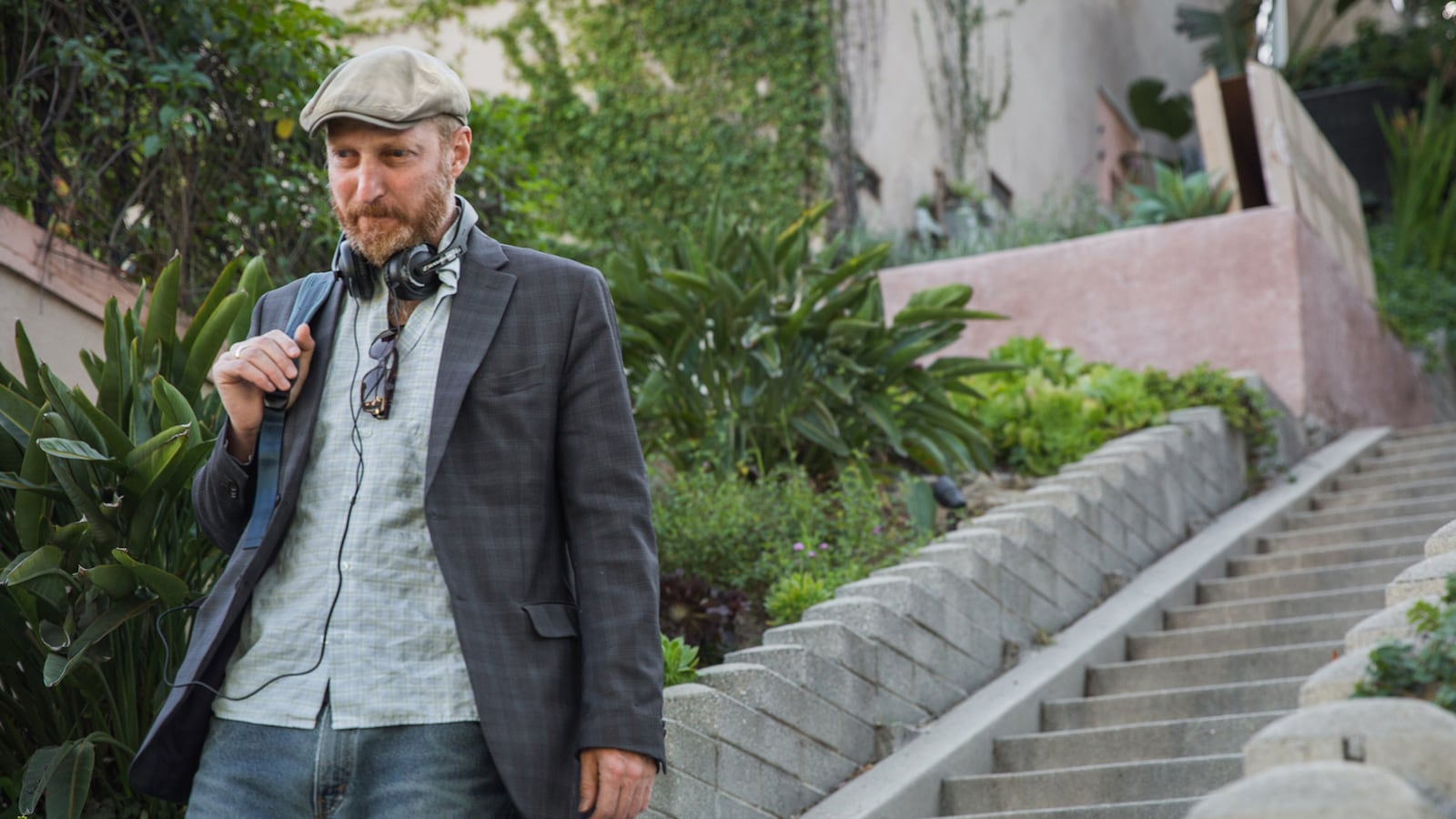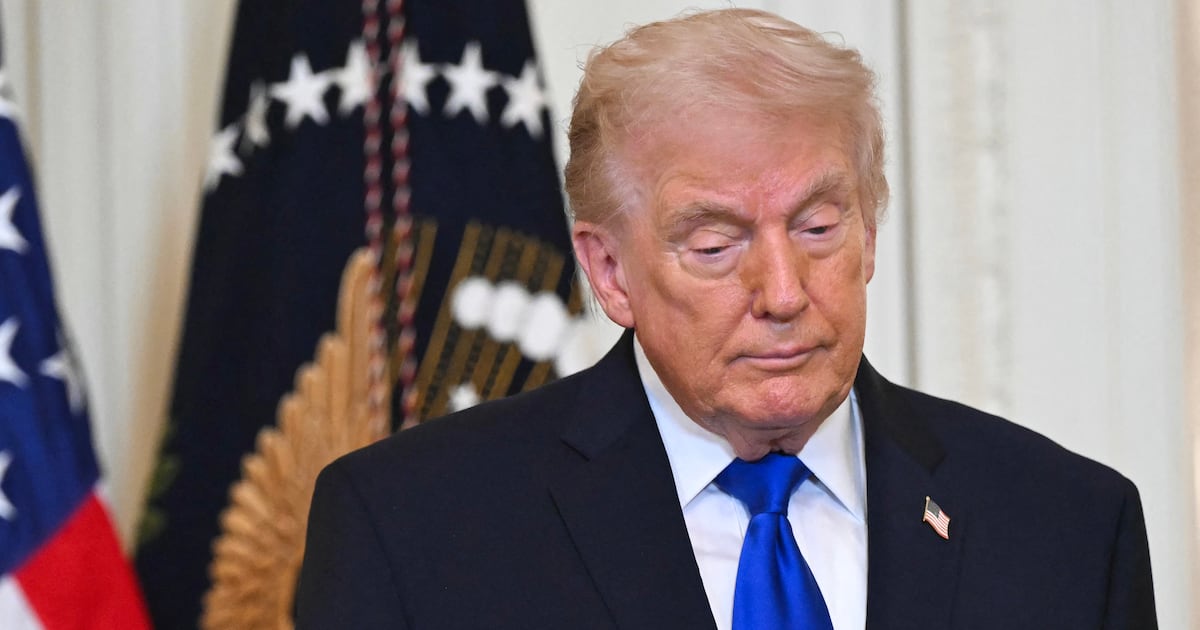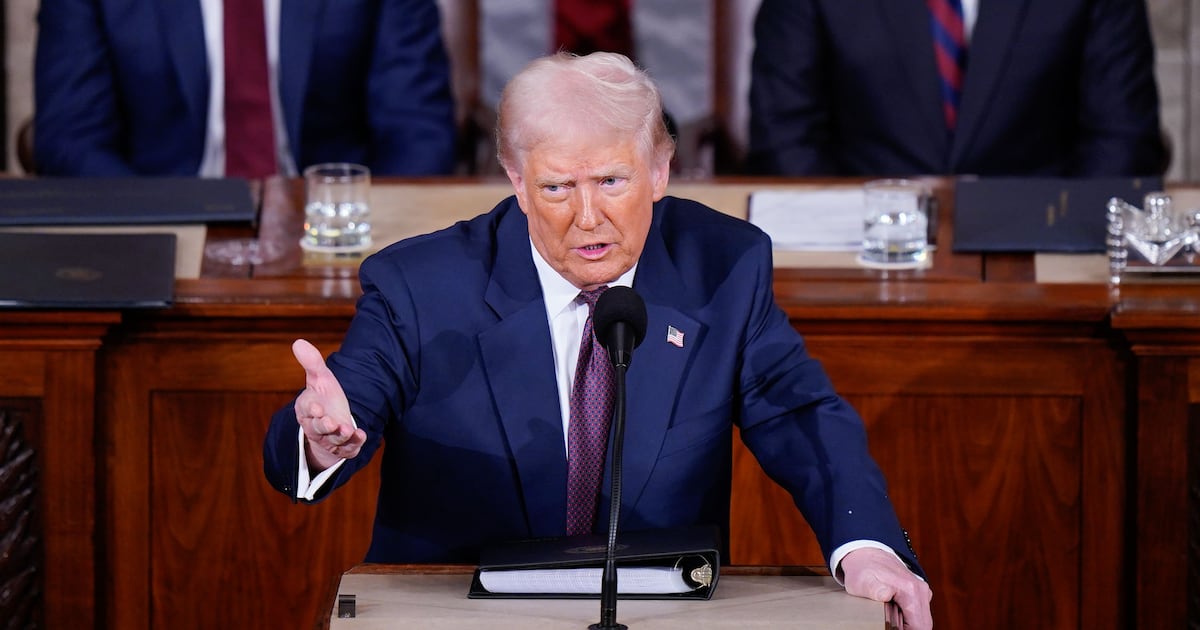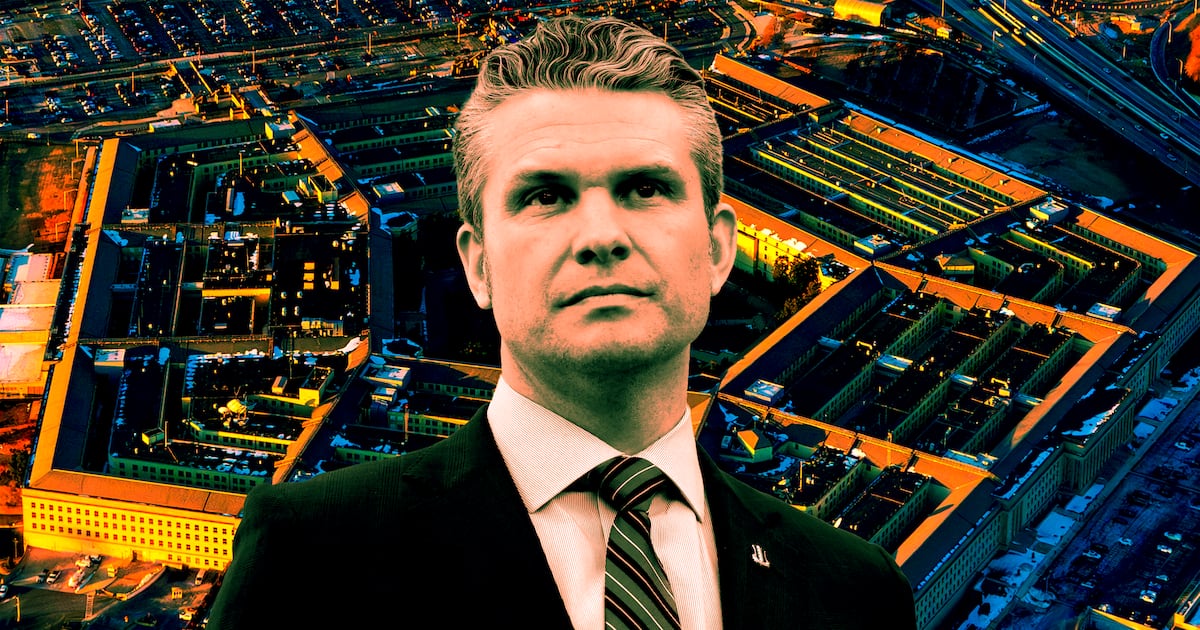What do you get when you take a master Shakespearian thespian, the comic sensibility of Jonathan Ames, the Hollywood muscle of Seth MacFarlane and heroic amounts of booze and blow? “Blunt Talk” is a raucous new series about a pontificating talk show host played to hilarious perfection by the stentorian Patrick Stewart, which premieres on Starz on August 22nd.
Stewart plays Walter Blunt, a British newscaster who’s just arrived in Los Angeles, and carries copious baggage such as substance abuse problems, kinky peccadillos, an ego that could apply for statehood, and an alcoholic manservant, played by Adrian Scarborough.
Ames, the show’s creator, writer, and producer, says he wanted to tell Blunt’s story from behind-the-scenes of his TV show, as his crew/surrogate family scramble to rescue him from one PR nightmare after another. It’s profane, buzzing with energy and very funny. MacFarlane is listed as the show’s executive producer.
The Daily Beast caught up with Ames over the phone to discuss the new show. (Interview has been edited for length and clarity.)
So, I watched the first three of the four pilots that were made available to me and it’s hilarious. Where did you get the idea for this?
Well, I was watching CNN one night and Piers Morgan was on the air and the background of his show was this electric blue, and it was real eye candy. In that moment I kind of had a flash of imagining Patrick Stewart in front of such a blue background, intoning about the news like a figure out of Orwell. So the idea began with a glimpse of Piers Morgan. And I was searching for an idea for Patrick Stewart because Seth MacFarlane wants to make a comedy with Patrick Stewart, and he was looking for a writer to come up with an idea. So, I pitched it to Seth MacFarlane and he really liked it. And I said, you know, we’d mostly live behind the scenes. It wouldn’t be “The Newsroom” or something; it would be more like “Larry Sanders” where we’re behind the scenes with these characters, this odd family.
And how did you get Patrick Stewart to agree to this?
Well I guess, Patrick and Seth had worked together, and once Seth liked my idea, Patrick also liked the idea. Then Patrick read one of my novels, maybe felt comfortable with me as a writer, and then just jumped on board with that crazy first script and all the things we put him through.
Were you surprised at how funny Patrick Stewart is? He doesn’t normally have that kind of reputation, being this Shakespearean thespian.
I don’t think I was surprised once I met him and got to know him. In many ways, our approach to the show and of a lot of my writing is to play it straight. And by playing it straight, the absurdity will emerge. So, by him playing this character completely straight it just becomes very funny. And I think Patrick, as a great actor, has great timing. And that’s a big part of comedy, you know, feeling when to say something, when to pause. And he also does some mugging, you know, funny faces, and he just inhabits the character and finds the humor.
The chemistry between Patrick Stewart and Adrian Scarborough really seems to be at the heart of the show. How did you settle on that chemistry and that relationship?
Yeah, you got a glimpse of it in episode three. As the season builds, a chemistry between all the characters emerges. But I would say, yeah, it’s the beating heart of the show.
I like to describe the show as a cross between “Network” and P.G. Wodehouse. Not a lot of people will get that reference, but I’ve been a longtime fan of P.G. Wodehouse and the Jeeves and Wooster novels and the relationship between a manservant and the master. In fact, one of my novels is an homage to P.G. Wodehouse. So this kind of relationship—this kind of asexual marriage, you know, this caring relationship—has often fascinated me, where the master’s actually not the master and the servant’s in charge.
So Patrick Stewart suggested Adrian Scarborough. They’d done a play together, and Adrian’s just luminescent in the role, I mean, he just is perfect.
Who else has really surprised you and blossomed from the cast beyond the first four episodes?
I don’t think I was surprised by everybody, you know. I cast everyone. I once heard this Lillian Gish phrase, that movies are about music and faces. So I always try to look for interesting faces and interesting human beings when I cast. And everyone we cast was very interesting. You know, obviously, Jacki Weaver, Dolly Wells, Timm Sharp, Karan Soni, Mary Holland. I think what’s maybe—again, I don’t know if I’d qualify it as a surprise—like a welcome gift was how unique and strange each one of the characters became and how like a real family formed so quickly. So, in my eyes they all blossomed. It was a very successful garden.
What was the atmosphere like on the set, and did you have any other book or movie references in the show, given that it’s a show about a TV show?
We just had a lot of fun on set. And I think just giving a call-out to the Peter Sellers “Pink Panther” with Cato and Inspector Clouseau and them having a Japanese sword fight, I think that kind of exuberance permeated the set. Later in the season, we did an homage to the Blake Edwards film “The Party.” So there was just the kind of celebratory feeling of, let’s make something entertaining for people out there we don’t know and maybe we’ll make them feel a little better. That’s my goal. I like the scenes, the episodes to have a sense of uplift.
How’s it been working with Seth MacFarlane, and how instrumental was he in getting this off the ground?
Seth was kind of the matchmaker between Patrick Stewart and myself. And he’s been a very enthusiastic cheerleader and supporter. He’s like, “This is great, go! This is great, go!” He’s a very busy guy, so he kind of got the ball rolling by wanting to have a comedy with Patrick Stewart, and then I took the baton and came up with the idea. So, he’s been great to work with.
And why Starz? Why not some other network or outlet?
Well, Starz is a fantastic network and they provided everything we needed. And I think they’re very much on the ascendancy. They’re the number two cable network now after HBO. And they also showed a lot of confidence in us and gave us a 20-episode order, so that’s pretty hard to top. And we were very extremely grateful and honored that they would do that.
What do you hope to accomplish with the show?
We worked long hours and it was very ambitious, but it was my goal—and again this is a line from P.G. Wodehouse where he said, “You try to give pleasure with every sentence”—so as much as possible, I try to give pleasure with every scene, you know, whether the way it was shot, the dialogue, the action.…You know, I just hope it’s a show that amuses people and makes them feel less alone.






